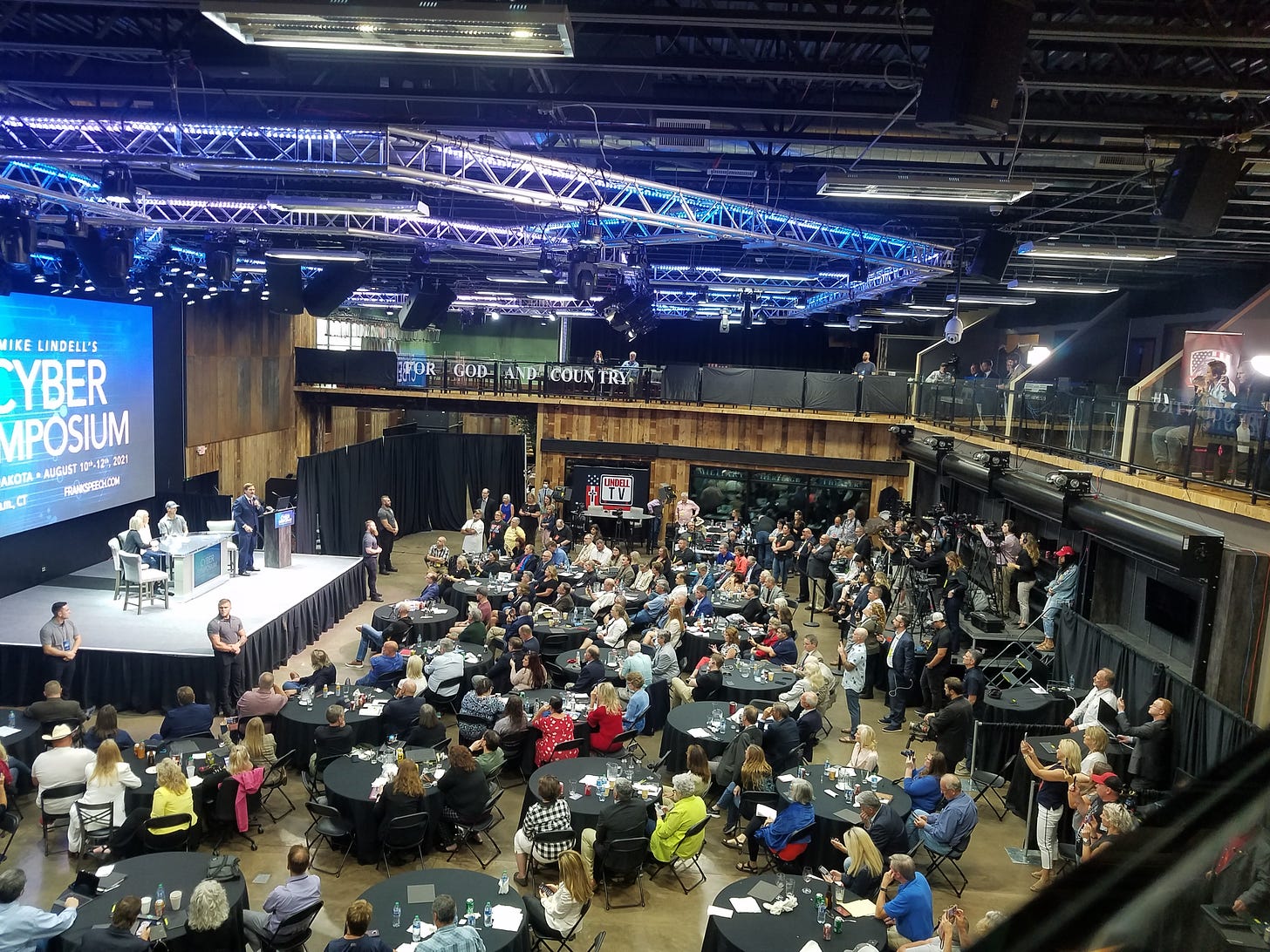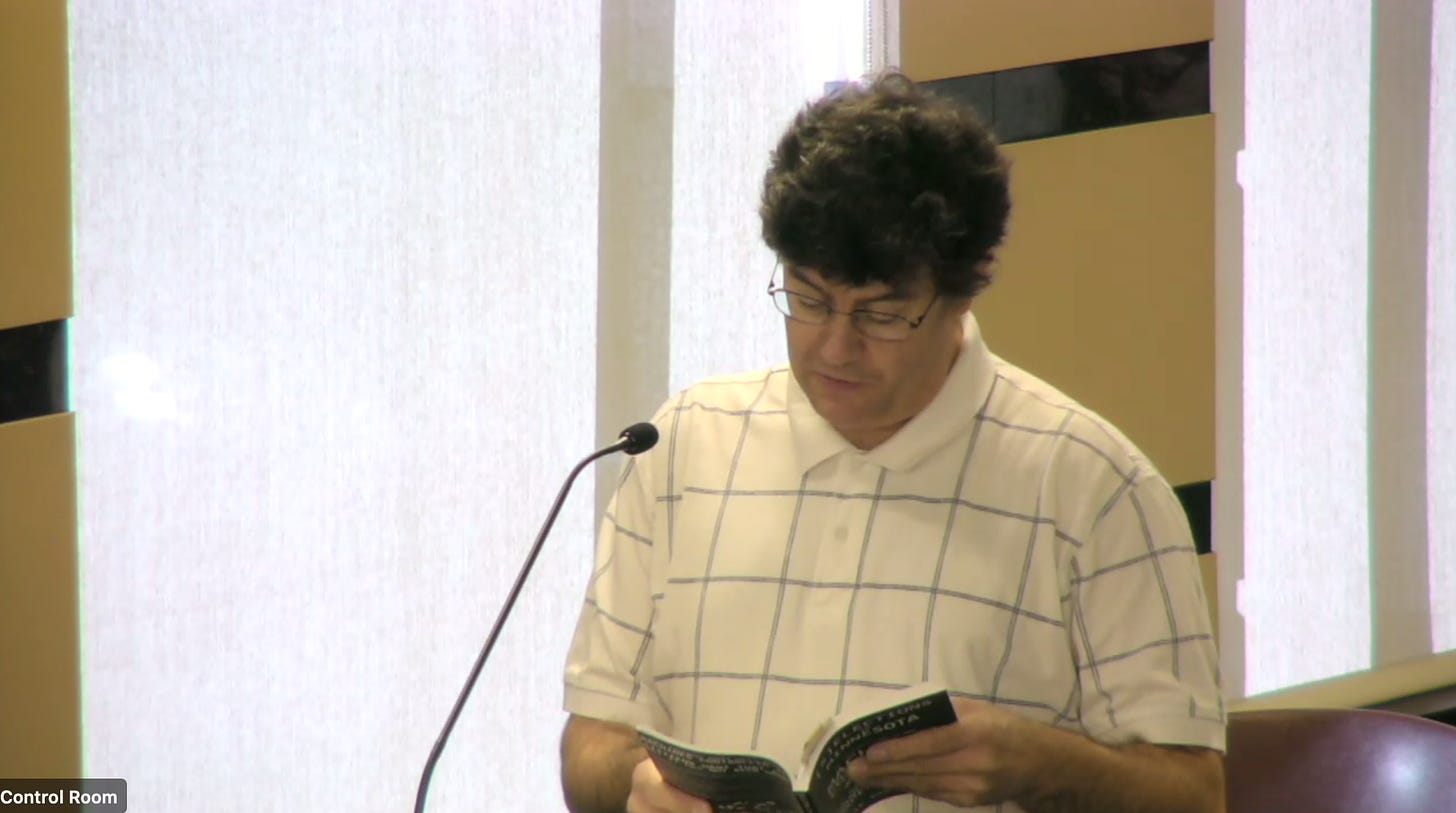
This newsletter will be changing shape as the year progresses. For example, I am moving much of the elections-related material to Project Minnesota. Occasionally there will still be updates on that ongoing saga—it gets more interesting every day.
The Next Chapter
On the same topic, I will also be sharing excerpts from work on my next book which is trying to give the everyday Minnesotan who has been distracted by many vectors a lens into the work that hundreds and possibly thousands of people all across Minnesota these past 20+ months have been doing related to government accountability and transparency on several issues, but namely on election process and systems. (You can read more about the previous book, [S]elections in Minnesota, here.)
Recognizing the perception that this topic is too dry (or too emotionally charged), an attempt is being made to tell the story through my own eyes as my learning occurred day by day, week by week, month by month. The story started well before The Cyber Symposium in August 2021, but that is where the book is likely to begin. It follows my early coverage of county commissioner meetings, finding people like Rick Weible and other early advocates, to running for MN Secretary of State, visiting dozens of Minnesota counties, working with hundreds of people, to The Moment of Truth Summit reconnecting with leaders of the nationwide investigation, to the November 2022 midterms, and what has happened in the aftermath.
I think it is going to a be useful resource to anyone who wants to share with their friends and family what they’ve been up to (if you are active in these efforts!) as well as a general and perhaps historical interest piece for the moment we are living in and through.
Any Ko-fi donations and your paid subscriptions here on Midwest Seeds or on Project Minnesota or on Books by Erik support my daily efforts on the task to fairly bring light to what has been an incredible journey (at least for me) and a bridge to ways of engaging once again with local government and performing our civic duties.
With that announcement made, here are just a few very brief items…
PCR
My friend Mark Bishofsky recently published a post with 120 articles and studies which begins with a link to Nobel Prize Winner Dr. Kary B. Mullis’s explanation of the PCR test, which he invented. Mullis died on August 7, 2019.
Mullis also has an intriguing book called Dancing Naked in the Mind Field, which touches on the development of the PCR test and many other topics.
CPR
I recently got certified for CPR . I have started part time group fitness coaching one night at week at a strength-focused gym. For the CPR course and test, which I paid $75 for, I used my phone to press against a pillow. When this wasn’t successful, I moved the phone up and down through the air to simulate the required movement and soon passed the test in about 2 minutes—start to finish the certification took about 90 minutes.
I am not proud of taking this shortcut even though the group fitness certification I am aiming for accepts this approach on account of changing attitudes about in-person interaction.
While I may know a little more about CPR than I did before, I remain less confident of appropriate technique than someone who has undergone a more extensive in-person training with more repetitions. Should a situation arise where someone else is familiar with the technique, I will be deferring to them. Overall, I think it is a good idea for fitness coaches to have this training for emergency situations.
This brief confessional segues nicely into a discussion of standards on a different topic.
CVR
Last year wrote a lot about cast vote record (CVR) reports. Typing “CVR” into the search bar on my Substack page will provide several articles sharing the history of the CVR coverup in Minnesota.
Jeffrey O’Donnell and Draza Smith have a nationwide repository of these reports where county auditors have managed to publish this public election data.
CVRs are automatically generated by tabulators (and extractable from election management system software or removable media ejected from the tabulators) to comply with audit standards coming through the National Institute of Science and Technology (NIST).
The NIST is under the umbrella of The Department of Commerce, which also provides standards of weights and measure for things like inches or gallons—when you are at the fueling station the sticker on the pump indicates a volume standard which ensures you do not get short-changed.
Recently, Rick Weible has assembled additional links to CVR documentation regarding these reports which most counties in Minnesota for various unsatisfying and unacceptable reasons (by law) are having trouble locating (or accessing), to summarize. Once again, simply typing “CVR” into the search bar on this Substack page will give you access to previous articles.
It will be possible to take legal action against counties that continue to withhold from the public these basic audits of the tabulators used to scan, tally, and record the ballot decisions on election day (and from absentee or mail in ballots), but the track record of Minnesota’s court system regarding election cases is less than satisfactory to date. It is puzzling why counties have decided to freeze citizens from reviewing public government work product for so long.
Book Coaching (New!)
Finally, if you are interested in writing or book coaching, I invite you to learn more here and setup a 30-minute call with me to discuss further. Being a guide to writing and a companion to another writer’s journey is something I very much enjoy. I’ve helped over 100 authors in the last 9 years on various aspects of their books, from ideation to publication. Even if it’s not a book you’re aiming for, if there’s a story to tell, it might be worth a discussion. (Much of my own writing this past year has occurred right here on this newsletter.)
Together, regular people like you and me will “rewrite history” through sharing our stories which will change others in due time. Often it is in the writing process that the author is changed too, well before any reader begins reading the finished work.




